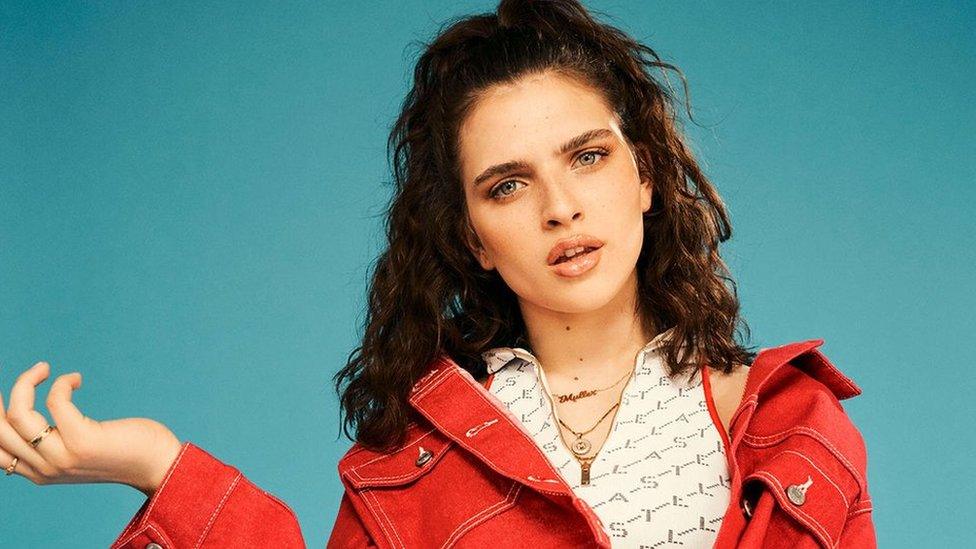Eurovision Song Contest 2023: Everything you need to know about the competition
- Published
- comments
Kids in Liverpool tell us what Eurovision means to them
All eyes are on Liverpool as the city hosts this year's Eurovision Song Contest.
It's the world's biggest international song competition with more than 160 million people from around the world expected to watch the final!
Thirty seven countries entered the contest and for the first time in its history viewers outside Eurovision countries are able to vote for their favourite acts.
So what can we expect and how did the contest come about in the first place?
Here's everything you need to know about Eurovision!
What do you think of Eurovision? Are you excited it's in Liverpool? Let us know in the comments below!
What is the Eurovision Song Contest?
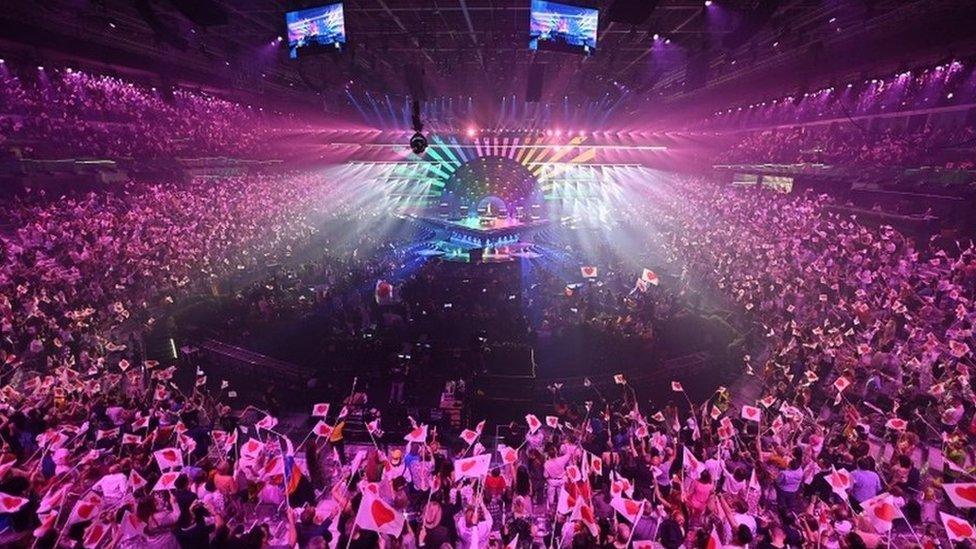
Last year's contest took place in the Italian city of Turin, the first time Eurovision had been held in the country in more than 30 years!
The Eurovision Song Contest is an annual international song competition which mainly features a mix of European countries, although a few non-European nations - such as Australia and Israel - can also take part.
The Contest has become known for its loyal fan base as well as some very flamboyant and sometimes bonkers performances!
It's also helped launch the careers of some famous musicians over the years, including ABBA, Céline Dion and Måneskin.
When are the Eurovision semis and grand final taking place?
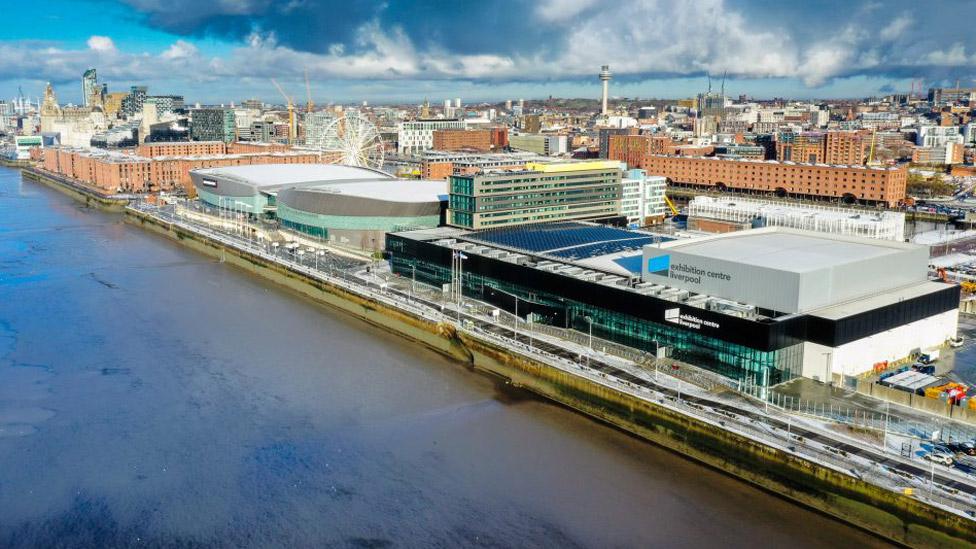
Liverpool's arena and exhibition centre, along the River Mersey, will be the location for this year's tournament
The competition is made up of three live shows: two semi-finals and the grand final.
The semi-finals took place on Tuesday 9 May and Thursday 11 May.
Ten countries from each semi-final are through to the grand final, on Saturday 13 May.
Why is the UK hosting this year's event?
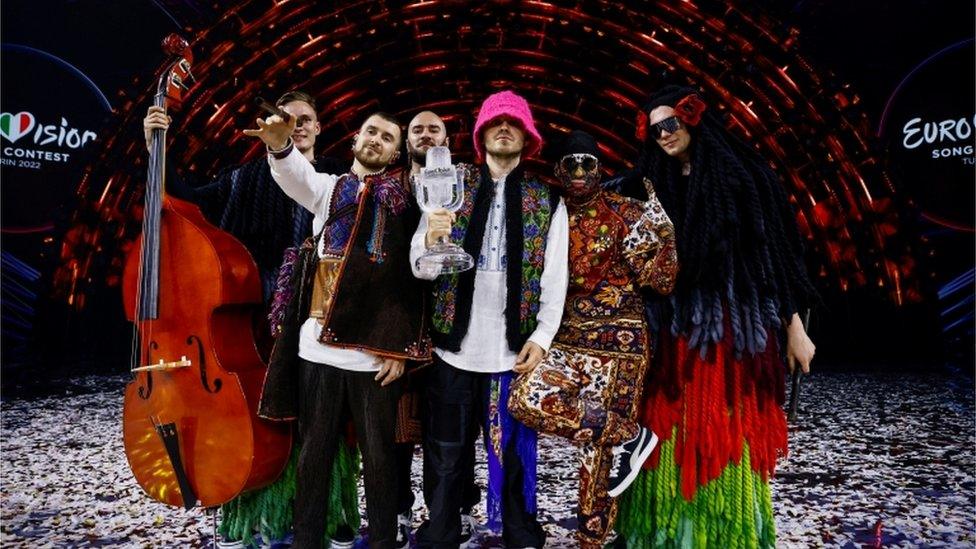
Ukraine's Kalush Orchestra won the contest last year
Ukraine's entry Kalush Orchestra won last year in the Italian city of Turin, with their folk-rap song Stefania.
The UK's Sam Ryder finished in second place, with Space Man.
Usually the winning country hosts the next competition. However, because of the ongoing war in Ukraine, the European Broadcasting Union (EBU), which organises the contest invited the BBC to host it on Ukraine's behalf.
The UK has previously hosted Eurovision eight times - more than any other country!
Every city in the UK then got the chance to send in their bid and say how they would host the competition.
The list was whittled down to a final two cities - Liverpool and Glasgow - and then Liverpool was chosen as the winner in October last year.
Who is the UK's entry for Eurovision?
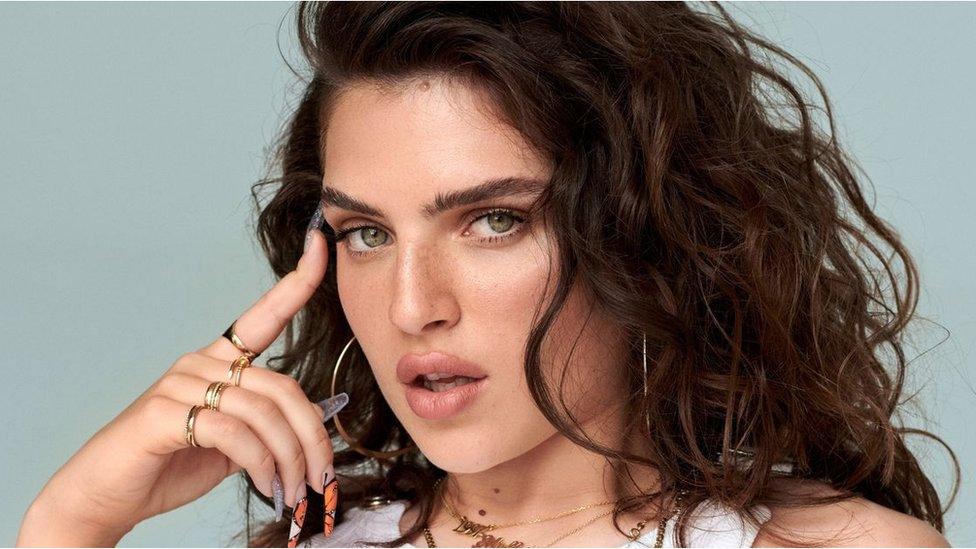
Mae Muller is the UK's first female Eurovision entrant in five years
Mae has been chosen as the United Kingdom's entry for 2023.
The 25-year-old will be performing her own track called 'I Wrote A Song' at the competition this weekend.
She'll be hoping to follow the success of Sam Ryder who came second in the competition last year.
Mae is the first female entrant for the UK since 2018, when the artist SuRie competed with Storm and came 24th.
Who is hosting the Eurovision live show?
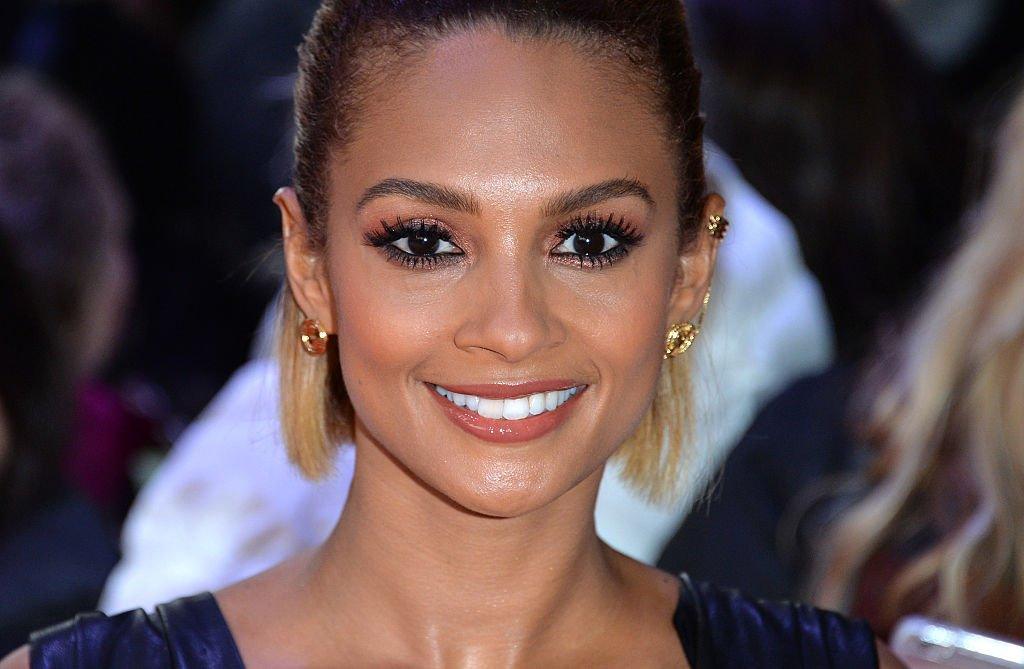
BGT's Alesha Dixon is one of the main hosts on the night
Each year the country that hosts the event also chooses the hosts for the TV show
This year the Eurovision live show will be shown on the BBC and be hosted by Britain's Got Talent judge Alesha Dixon, Hocus Pocus 2 actress Hannah Waddingham and Ukrainian singer Julia Sanina - alongside Graham Norton, the comedian and talk show host.
Why was Eurovision created?
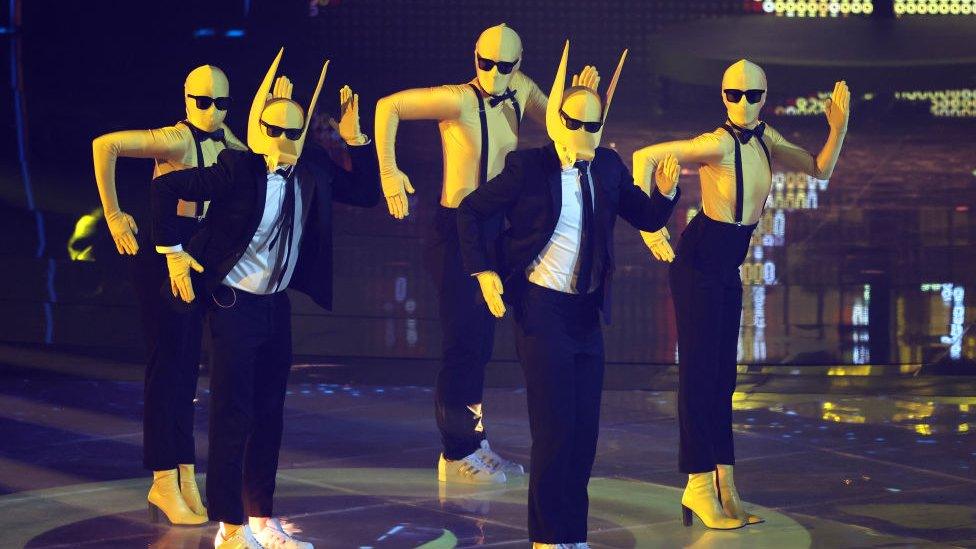
These days, Eurovision often features some unusual costumes and performances!
The idea for the contest was put forward seventy years ago, by a man called Marcel Bezencon who worked for the European Broadcasting Union (EBU) - an organisation of TV companies in and around Europe.
He was inspired by an Italian song contest called the Sanremo Music Festival.
Eurovision was originally designed to test what could be done with early live TV technology, but has now grown into a huge international show and celebration.
When was the first Eurovision?
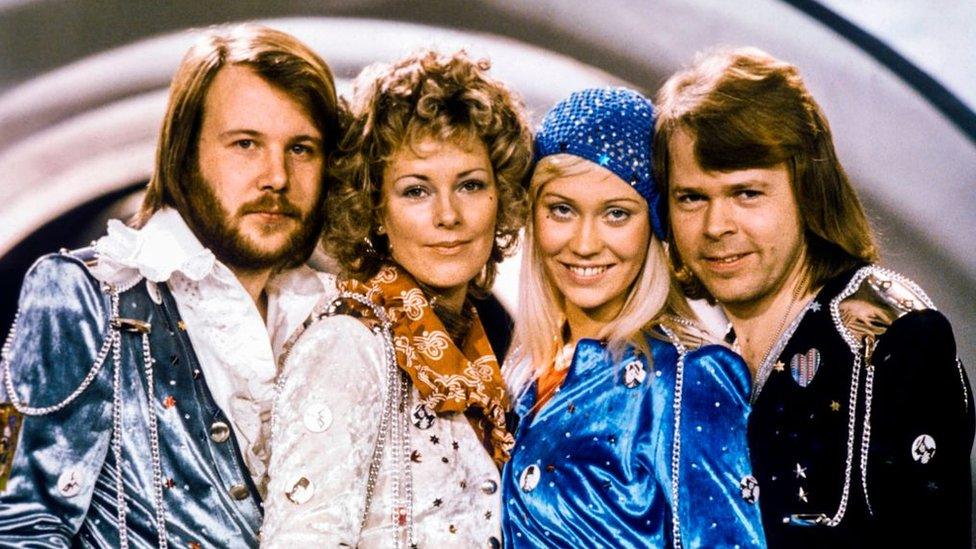
Eurovision has helped launch the careers of many artists, including Swedish pop group ABBA, who won the competition in 1974
The first ever Eurovision Song Contest took place on 24 May 1956, when just seven countries took part - Belgium, France, Germany, Italy, Luxembourg, Netherlands and the host country, Switzerland.
The songs were much more simple and the music was performed by a live orchestra.
The competition in 1956 was also the only time that each country performed two songs!
The UK made its debut at the event a year later, in 1957, because it missed the deadline for participating in the first ever Eurovision!
How many countries are taking part in Eurovision 2023?
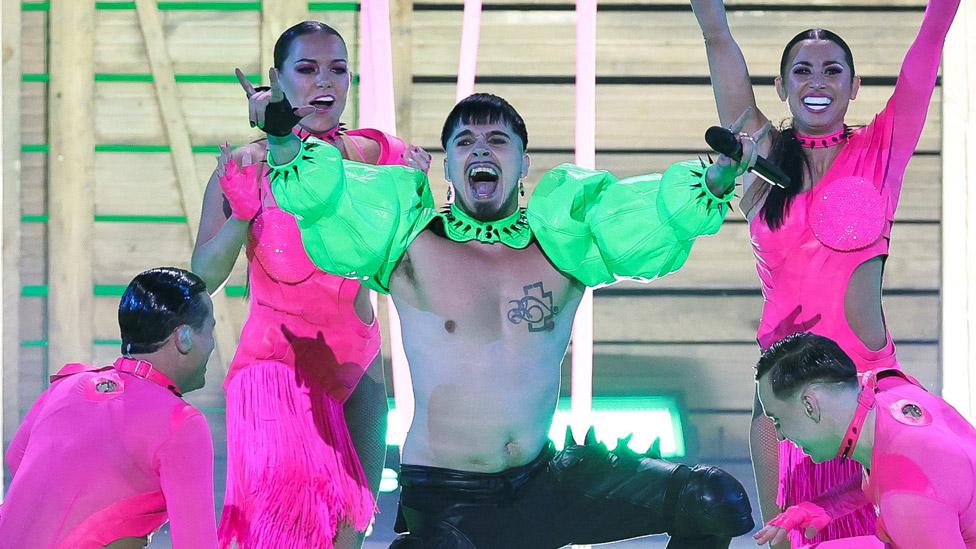
Finland's Käärijä and his dancers have one of the most eye-catching looks
There were thirty one countries which took part across two separate semi-finals.
The twenty countries through to the final are Norway, Serbia, Portugal, Croatia, Switzerland, Israel, Moldova, Sweden, Czechia, and Finland who got through in the first semi-final.
Albania, Armenia, Australia, Austria, Belgium, Cypru, Estonia, Lithuania, Poland and Slovenia who got through in the second semi-final.
Along with UK, France, Spain, Italy and Germany qualify automatically.
This is because they are the biggest financial contributors to the Eurovision Song Contest organisers, the European Broadcasting Union (EBU) - and therefore they are guaranteed a place in the final.
The final country which automatically qualifies for the grand final is last year's winners, Ukraine.
So a total of 26 countries will be competing for Eurovision glory on Saturday 13 May.
How does the Eurovision voting work?
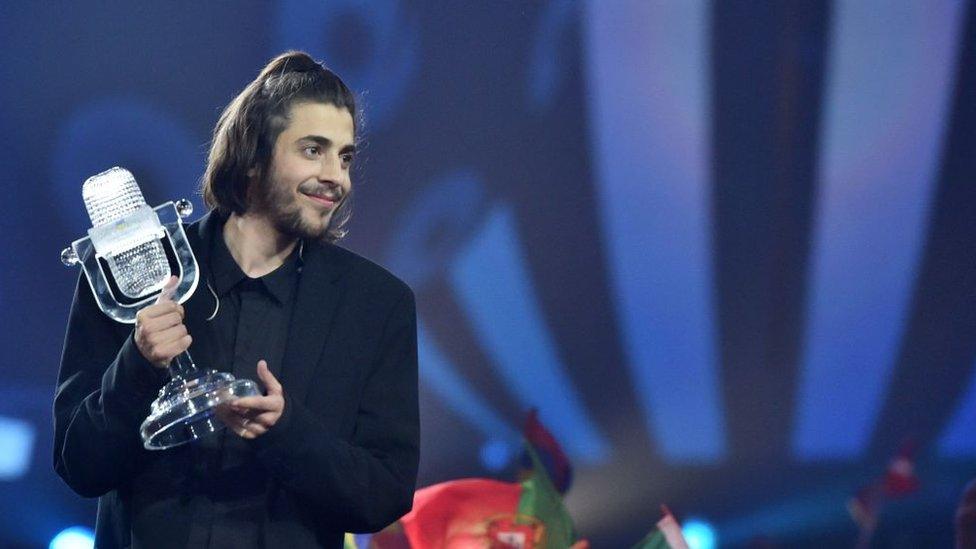
Every year the Song Contest winner is presented with the iconic Eurovision glass microphone trophy
The winner of the Eurovision Song Contest is decided by all of the countries involved, with each nation getting to award points to the other countries that they want to win.
The scoring is based on a mix of viewer votes and the opinions of a music expert jury from each country.
The voting process for the semi-finals and the final is slightly different.
This year, the ten acts going through from each of the semi-finals will be decided only on public votes.
In the final itself, the voting is a bit more complicated.
Over 1,500 songs have taken part in the Eurovision Song Contest since it first started in 1956!
Each of the 26 competing countries has a jury whose members rank all of the countries' performances.
They then give out points to their favourite top 10 countries.
The act they enjoyed the most is awarded the maximum 12 points, followed by 10 points for their second favourite song, then eight, seven, six, five, four, three, two and one point.
These scores are then combined with the results of a public vote from each competing country.
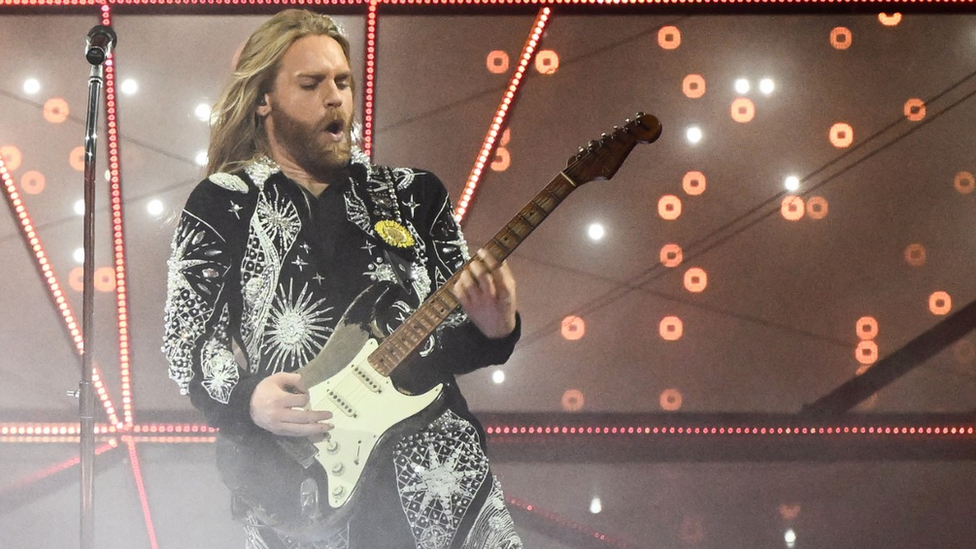
Sam Ryder won the jury's vote with his song Space Man in 2022, but finished second overall
However, for the first time in 2023 - people from across the globe, not just in Eurovision countries, will be able to have their say.
This is because public votes from the rest of the world will be counted as if they are one other country and will also give out 12 to one points.
At the end of the grand final, the winner is the country with the most points once everything is added together.
Which country is the most successful at Eurovision?
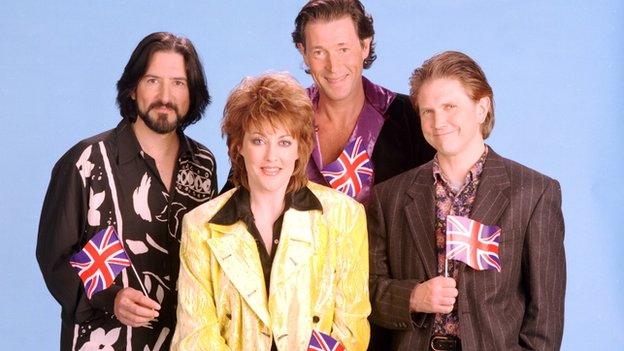
Katrina and the Waves were the last UK winners of Eurovision back in 1997
Twenty-seven countries have won the contest since it first started.
However, the country with the highest number of wins is Ireland - with seven.
The UK has won the contest five times - in 1967, 1969, 1976, 1981 and 1997.
It has also finished second a record 16 times, including Sam Ryder's performance in 2022.
Why does Australia take part in Eurovision?
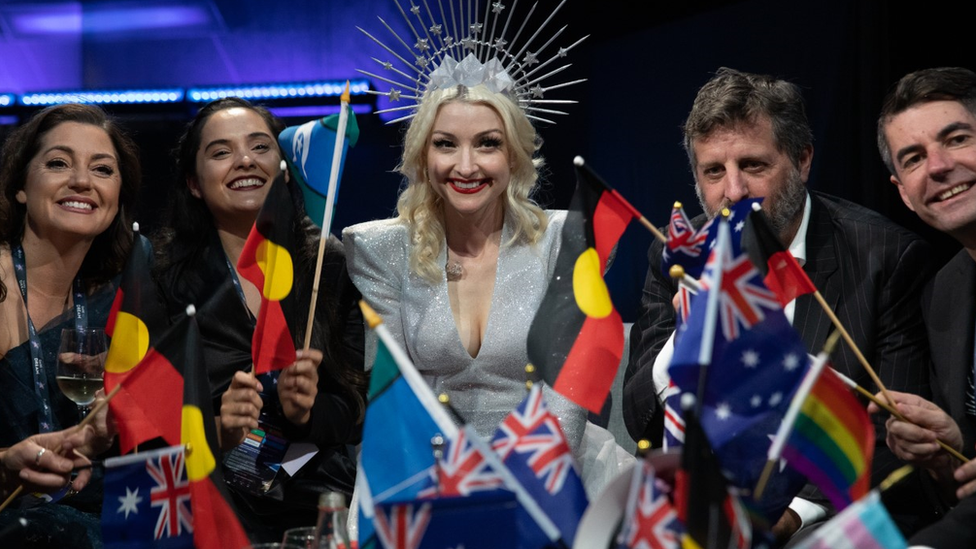
Kate Miller-Heidkes represented Australia in 2019 in Tel Aviv
Eurovision has been popular in Australia since the 1980s, when the contest was first shown in the country with plenty of Aussie fans tuning in every year.
As a result, in 2015, the country was invited to perform as part of celebrations to mark the 60th year of the song contest.
It was such a success that the country was given permission to keep competing until this year at least.
If Australia ever won the competition, there's a special rule in place which states they would have to nominate a European co-host who would stage the competition on their behalf, so there's no chance of the Eurovision Song Contest taking place on the other side of the world.
There are a few other countries not in Europe - like Armenia and Israel - who also participate in Eurovision, as they are members of the EBU.
- Published30 April 2023

- Published9 March 2023
